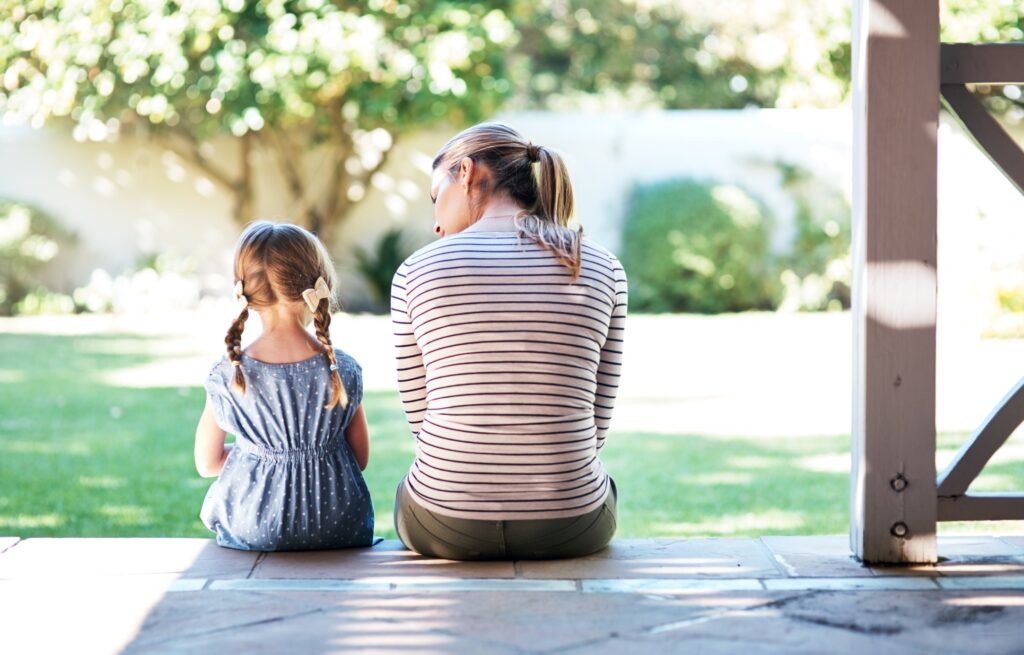We are living in a time in which the world is repeatedly out of balance, even in our immediate vicinity. For some months now, we have been experiencing a war in Europe with all the associated consequences. These affect not only the people from Ukraine, but also us.
The daily news as well as personal encounters with war refugees at work, at school, in the community, etc. let us experience the war at first hand.
We also feel the economic consequences, e.g. with petrol, food and energy prices and other inflation.
Not only we, but also our children perceive that unrest and fear have been widespread for months. They observe and experience the war and its effects just as we do. They notice that mum and dad are restless when they hear the news. They see that there are suddenly demonstrations against a country on the streets. They hear on the street, from other schoolmates or on the news that two countries are fighting each other with weapons and that people are fleeing to our country. And that children are also affected.
We parents try to protect our children as best we can and to keep everything bad away from them. In doing so, we often forget that we are not taking away the children's worries, but simply suppressing them. Our children experience everyday life and world events just as we do. It is our task as parents to support and accompany our children. The goal should not be to shield the children from everything bad and evil, but to take them seriously in their ability to take responsibility and to really let them share in our own worries.
We can and must trust our children with reality and trust that they will cope with it, as in principle we all have to cope with it.
Dealing with fear
When a child is afraid, we have to take these fears seriously. The point is not that we talk down what scares the child, but that we are a constant for the child. To say that nothing will happen as a consolation is the wrong approach. This would only lie to our children, because none of us knows what the future really holds. Rather, we should say: "I don't know what will happen. Something may happen, but you can be sure that we will always do everything to ensure that nothing happens to us."
At what point do I have a serious conversation with children?
Involving children in conversations is very important; the age at which one should have serious conversations with children is very individual. Up to primary school age, serious conversations should only take place in immediate situations; basic conversations with the youngest children are not tangible for them. It is helpful for young children to discuss concrete situations they have observed. If the child has just seen images of war on the news, overheard conversations between adults about war or the topic was discussed in kindergarten, it is important to talk about it with the child and explain that these are real images and situations, that there is a country where war is currently taking place. In more childish terms, one could say that there are two countries fighting each other.
It is also important to present the consequences of war in an understandable way. For example: "Because there is a war going on in a country, there are many people who can no longer stay in their homes and are looking for safety in our country. That's why you might have new kindergarten children who don't speak our language."
With older children, i.e. approximately from lower school, serious conversations about war can also take place without observed situations. The older children are, the earlier and more proactively the conversation should be sought, otherwise ambiguities and misunderstandings may arise. In the worst case, untruths or "fake news" could reach the children as truth.
Tips for parents
Take the child's fear seriously and provide age-appropriate information. With younger children, it is advisable to only talk about the war if the child specifically asks about it or witnesses concrete situations. Cruel details should be avoided if possible.
If a child is worried and asks questions, parents should answer honestly and without embellishing. However, if you don't have an answer to the questions, don't lie to your child, but tell them, "I don't know at the moment. I will find out and as soon as I know, I will give you an answer."
As a parent or caregiver, convey calm and security. Allow the child's emotions, comfort them and take them in your arms.
Children have very fine antennae. If the parents are worried, the children feel it. Parents should therefore ask themselves what the war means to them and how they deal with the issue. Don't make it a taboo, but put your worries into words appropriate for children.
With older children and young people, parents can and should actively offer the conversation and ask, for example, what he or she thinks about it.
Ask where your child came across the topic. What did they see or read? Is the source of the information reputable? Discuss disturbing pictures or videos with the adolescent.
Tie in with the child's world. What images of fighting does he or she have in mind from books or video games? Depending on the age, picture books or news programmes for children can help to explain war in a child-friendly way.
Maybe your child would like to actively do something for war refugees. For example, you can light a candle as a family for the people in Ukraine or donate money for them. Children and young people can often put their thoughts, wishes and feelings on paper in a drawing or a letter.
If the war is very present in your family, you can distract yourselves together. Do something that is good for you, for example, get a good meal or go for a walk.
If you are a parent or caregiver for children and adolescents and would like support in this special situation, we are very happy to assist you within the framework of the EAP programme!
EAP counsellors are there for you.
Yours sincerely, your EAP team
Many people want to help. We have put together a selection of different ways in which you can support those affected by the war.

